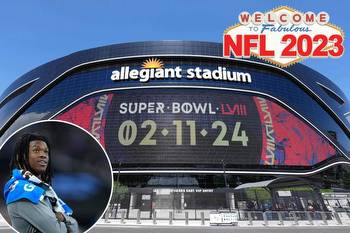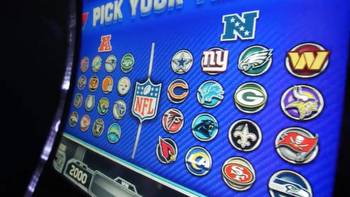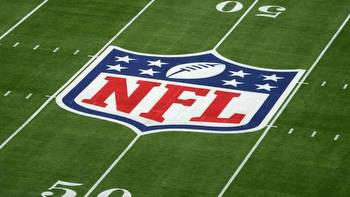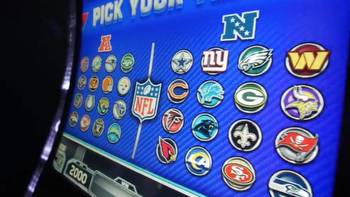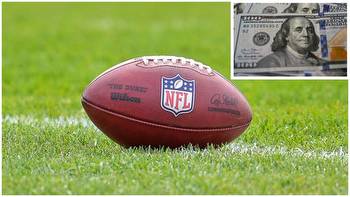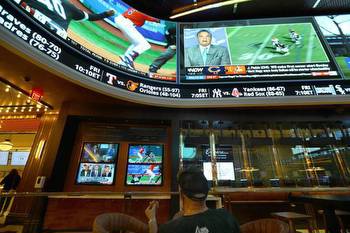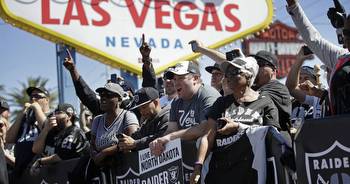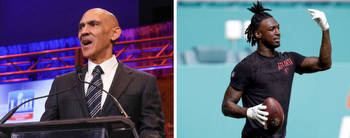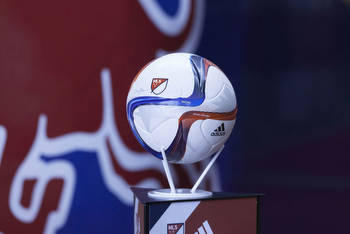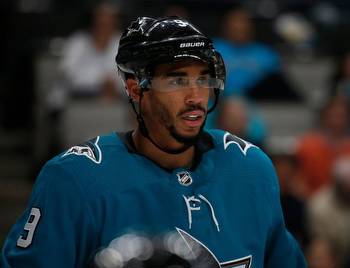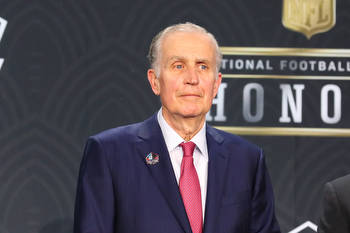Calvin Ridley's gambling costs receiver on, off field

Both of the slightly built receivers used crafty footwork and strong hands to make plays. Ridley caught 217 passes in his first three seasons to Harrison’s 196 and had more receiving yards (3,061 to 2,478).
But last year, in his fourth season, things went haywire for Ridley.
Ridley’s story is a cautionary tale about gambling that is complicated by his departure from the team in the middle of the 2021 season to deal with mental health issues. He played in only five games, and it was discovered later that he bet on NFL games. He was suspended indefinitely March 7.
Prohibitions against betting on NFL games by players long has been the rule. The league’s fear is that if a player gambles, he’ll go into debt, be compromised and somehow be tempted to shave a game.
Ridley was away from the team in November when he made the bets. On social media, he admitted to making $1,500 in bets. Now, he will not receive his salary of $11.1 million while suspended this season.
It’s a much harsher penalty than the NFL levied against Ray Rice (domestic abuse), Adrian Peterson (child abuse), Kareem Hunt (domestic abuse), Ben Roethlisberger (domestic abuse) or Tom Brady (Deflategate).
Ridley’s gambling was seen by the league as going to the fabric of the game.
“So, everything relies on the concept of an even playing field,” agent Leigh Steinberg said. “The supposition that both teams are trying as hard as they can, giving maximum effort. Both coaches are incentivized to win.
“And what you’re seeing is a real contest. Between two teams playing with the same rules on the same field, and it’s only athletic performances that determine the outcome. So, understand that anything involving an athlete and betting triggers a tripwire. It sends shudders through the NFL league office and individual teams.”
All of the Falcons’ rookies this season had to watch a video presentation on the league’s gambling rules.
Ridley’s gambling issue also affected the Falcons’ offseason plans this year. The team was deep into trade talks with the Eagles when it found out about the gambling issue. The Falcons respectfully chose to withdraw from the talks.
Ridley may petition the NFL for reinstatement on or after Feb. 15, 2023. He must notify the league of his desire to be reinstated in writing.
The league then would take into consideration his understanding of the league policies and his commitment to any program that may or may not be mandated by the league.
Ridley became the seventh NFL player suspended for gambling or gambling-related activities.
The NFL has held to a firm stance against players gambling that dates to Commissioner Bert Bell in the post-World War II era. He was the commissioner from 1946-59.
He implemented the first proactive anti-gambling policy. Bell suspended Frank Filchock and Merle Hapes of the New York Giants for not reporting attempted bribes to throw the 1946 championship game. Both players were suspended for “conduct detrimental to the league.”
In 1963, Detroit Lions defensive tackle Alex Karras, like Ridley, admitted to betting on games.
On April 17, 1963, Karras and Green Bay Packers running back Paul Hornung were suspended indefinitely. Hornung for betting (1959-62) and Karras for betting and associating with people described as “known hoodlums,” according to Joe Horrigan’s book, “NFL Century: The One-Hundred-Year Rise of America’s Greatest Sports League.” Five other players were fined $2,000, the maximum penalty at that time, for betting $50 on the 1962 NFL title game at a social gathering set up by Karras.
Colts quarterback Art Schlichter, an admitted habitual gambler, was suspended in 1983 and reinstated after 13 months before washing out of the league.
In 2019, Commissioner Roger Goodell suspended then-Cardinals defensive back Josh Shaw for betting on games. Shaw was on injured reserve when he went to a Las Vegas casino and placed bets of an undisclosed amount on several sporting events.
The NFL’s gambling policy states: “All NFL personnel are prohibited from placing, soliciting, or facilitating any bet, whether directly or through a third-party, on any NFL game, practice or other event. This includes betting on game outcome, statistics, score, performance of any individual participant, or any kind of ‘proposition bet.’”
The league has held to the position that results of the game must be legitimate.
“If fans ever started to speculate that what they were seeing in front of them was a performance shaded or tainted by someone with gambling debts, that was in serious trouble with a bookie, like Art Schlichter, then all of a sudden, instead of dominating sports … it would lose massive amounts of popularity,” Steinberg said. “The point is, that this stokes the deepest fears of the NFL, about compromised results, undermining the foundation of the game.”
Ridley was warned about his gambling activities.
“Your actions put the integrity of the game at risk, threatened to damage public confidence in professional football, and potentially undermined the reputations of your fellow players throughout the NFL,” Goodell wrote in a letter to Ridley. “For decades, gambling on NFL games has been considered among the most significant violations of league policy warranting the most substantial sanction.”
The public’s perception is key.
“We don’t think wrestling is real,” Steinberg said. “We think the NFL games are played on an even playing field. It’s not surprising that the league would move dramatically to separate a player or a franchise or an owner with suspicions that they might be gambling and then have gambling debts.
“Then need to do something to alter it or they’re betting and their performance is somehow shaded, is somehow to say nothing, you know, fumbling in a critical time, right? A quarterback throwing an interception on purpose. I mean, none of this has been part of this experience.”
Even if Ridley gets reinstated, he may never return to the early arc of his career.











